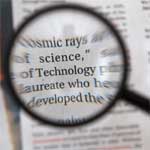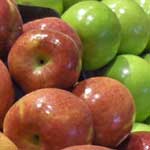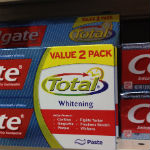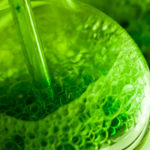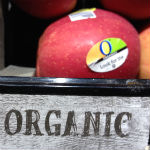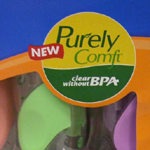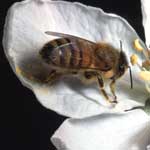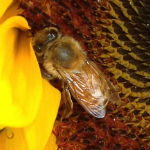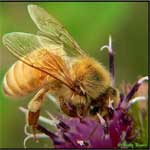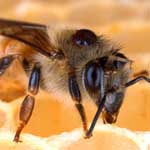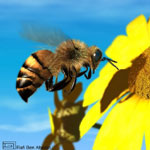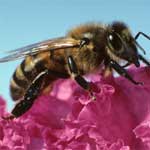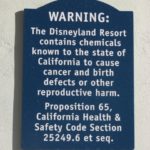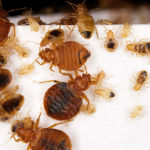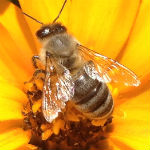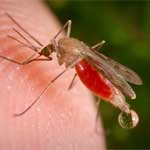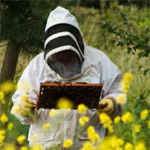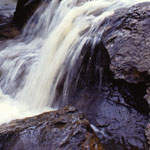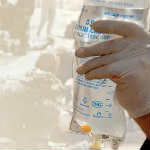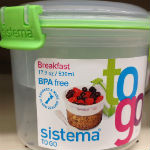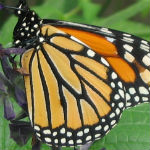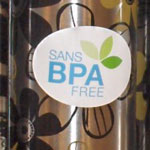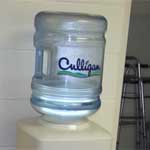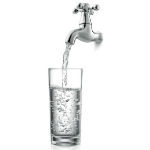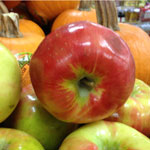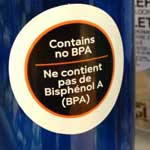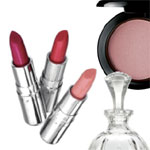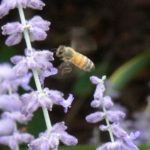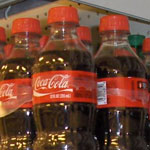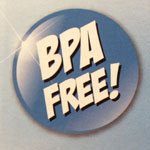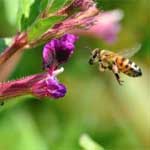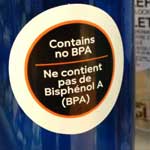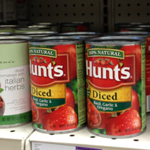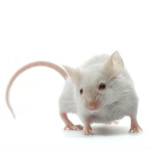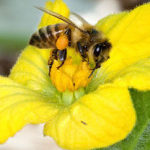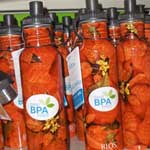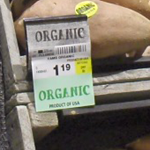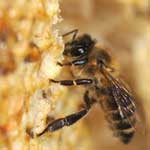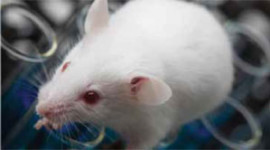"Weight Of Evidence: How To Make Sense Of Reports On Toxicology And Pesticides," by News Staff at Science 2.0. There are tens of thousands of human-made chemicals circulating today and some have been bad despite studies that didn't initially find harm, yet almost every chemical is under siege by environmental groups, and they all claim science is on their side. Everything from bisphenol A used in plastics to neonicotinoid pesticides to glyphosate weed-killers are criticized by lawyers at … [Read more...]
BPA in Food Packaging is Safe Safe Even for Kids & Babies
"European Food Safety Authority Confirms BPA Safety—Again," By Angela Logomasini on CEI.org. The debate over the chemical Bisphenol A (BPA) has raged for years, with environmental activists continually hyping the risks associated with it. Used to make hard-clear plastics and resins that line food containers such as soda cans or canned fruits and veggies, humans have been exposed to trace levels of the chemical for decades without evidence of any ill effects. And a recent review of the science … [Read more...]
Endocrine Disrupter Debate
“The Science of the ‘Endocrine Disrupter’ Debate” Explains the Absence of Science," By American Council on Science and Health. In the recent Independent Women’s Forum, CEI’s Angela Logomasini dissects the hype from the facts about so-called “endocrine disrupting” chemicals. She points out (as we here at ACSH have been saying for years) that the term itself has no real scientific or medical meaning, outside of its repeated (emphatic) use by those with an anti-chemical agenda and their pals in … [Read more...]
Data Show Yet Again: Pesticide Residues Are Negligible
"Agriculture Shows Responsible Pesticide Use," By Dale Hildebrant. You usually don't have to look far to find some group that criticizes the use of pesticides in the agricultural industry. Food safety groups, consumer organizations and even a scattering of ag groups condemn the use of pesticides when it comes to raising crops of any kind. But recently some good news about pesticide use was reported and it came in the form of the annual Pesticide Data Program. This is a collaborative effort … [Read more...]
Bring Back BPA!
"Bring Back BPA!" By Julie Gunlock. A few years ago, the BPA-free movement launched as misinformation about the chemical BPA (a chemical that has been the focus of thousands of safety studies and has been used for over 50 years) began hitting news stands. So, what replaced BPA? Another chemcial called BPS. But now, the chemphobes are complaining about this replacement chemical saying it too is dangerous. Goodness, what are moms to do now? They're going to have to throw out all those BPA-free … [Read more...]
Myths about Triclosan Debunked
"The Debate Rages On – Triclosan/Copolymer: Debunking the Myths," by By Maria Perno Goldie, RDH, MS. There have been claims in the news lately that triclosan is unsafe for humans. As with any product, toxicity is determined by the dosage, and the amount of potentially toxic ingredients in a product. This article discusses the efficacy of dentifrices containing triclosan, and the fact that there is currently not enough evidence to recommend avoiding use of products that contain triclosan. … [Read more...]
Costs of Green Chemistry
"Consumers to Pay the Price for State Environmental Regulations," by Angela Logomasini. Consumers could soon face higher prices, reduced choices and lower-quality products, thanks to a slew of chemical regulations that are advancing in various states. These regulations are unlikely to provide any measurable benefits, and instead would reduce consumers’ access to a myriad of products, from children’s toys and canned food to paint and building materials. These regulations, pushed largely by … [Read more...]
Consumers Confused About Organic Food Rhetoric
"Study Shows Conflicting Statements on Healthy Eating May Be Impacting Low Income Consumers," By SafeFruitsandVeggies.com. A new peer reviewed study shows that conflicting messaging on food safety and nutrition may be having a negative impact on consumers, especially those with lower incomes. Researchers at the John Hopkins Center for a Livable Future conducted the study which was published in the journal Culture, Agriculture, Food and Environment and titled, “’They Just Say Organic Food Is … [Read more...]
BPA Fears Spread to BPA Alternatives
"Fear, Inc. is Having a Big Day on the New York Stock Exchange. It is Up 45 Percent on Heavy Volume," By American Council on Science and Health. How could it not be? After all, the plastic component BPS — supposedly a safe replacement for BPA — isn’t looking so great after all. BPA (bisphenol A) is a chemical so “deadly” that Times columnist Nick Kristof — by far the most accomplished toxicological expert who never took a chemistry class — refuses to touch cash register receipts because they … [Read more...]
Non-Toxic Christmas Toys
"Santa's Nontoxic Toys," By Joseph Perrone, Sc.D. Finding the perfect gift for your children this holiday season is certainly stressful—just ask Arnold Schwarzenegger’s character in Jingle All the Way. But while you might worry whether you’ve picked the trendiest doll or the coolest video game, you shouldn’t have to worry about whether your gifts (or Santa’s!) might be toxic to your kids. Read more. … [Read more...]
Activist Science and Honeybees
"Activist Science Undermines Research on Honeybees and Pesticides," by Angela Logomasini. As reported in a blog post by David Zaruk, some of the “science” on the impact of neonicotinoid pesticides on honeybees appears to have resulted from a pre-orchestrated campaign, rather than an unbiased scientific process. The researchers involved are members of the International Task Force on Systemic Pesticides, which is part of the International Union for Conservation of Nature (IUCN). The task force … [Read more...]
Top Ten Scares of 2014
"ACSH’s Top 10 Health Scares of 2014," by American Council on Science and Health. 10.The Food Babe attacks ingredient found in Subway bread The chemical azodicarbonamide is used in baking as a dough conditioner, meant to improve the strength and workability of the dough, as well as to increase the speed at which the dough rises. It is a common ingredient in bread. Azodicarbonamide is generally recognized as safe (GRAS) by the U.S. FDA, and is thus considered safe to be added to foods. Read … [Read more...]
Toxic Chrismas Decorations?
“Watchdog” Group Warns about “Toxic” Christmas Decorations. Ignore Their Barking," by American Council on Science and Health. Where would one normally expect to find such a sensational story: What could be worse than getting a bag of coal for Christmas? A bag full of toxic chemicals, health groups say. A new report from HealthyStuff.org finds toxic chemicals in many of the popular Christmas decorations like Santa Clause [sic] hats, Christmas lights, stockings, and wreaths that were tested. We … [Read more...]
Bee Experts Dismantle Touted Harvard Study
"Bee Experts Dismantle Touted 'Harvard' Neonics-Colony Collapse Disorder Study As 'Activist Science,'" by Jon Entine. Chensheng Lu was in his element last month at a speech before a green group at Harvard Law School. The School of Public Health professor was lecturing on his favorite topic--his only subject these days, as it has become his obsession: why he believes bees around the world are in crisis. Lu is convinced, unequivocally, that a popular pesticide hailed by many scientists as a less … [Read more...]
Pseudo-Science, Neonics, and Honeybees
"Still More Politicized Pseudo-Science? The Neonics and Honeybees Saga Takes Interesting, Potentially Fraudulent Turn," by Paul Driessen. Insisting that scientific evidence shows a clear link between neonics and honeybee population declines, EU anti-insecticide campaigners persuaded the European Union to impose a two-year ban on using the chemicals. Farm organizations and the Union’s Environment, Food and Rural Affairs Department unsuccessfully opposed the ban, arguing that evidence for a link … [Read more...]
Congress Should Stop Funding Activist Science on BPA
"A Taxpayer-Funded Family Feud," By Tom Schatz. It is bad enough when an agency spends taxpayer money foolishly, but it is even worse when those expenditures end up undermining the conclusions of another agency. Between 2000 and 2014, the National Institute of Environmental Health Sciences (NIEHS), part of the National Institutes of Health (NIH), sent $172.7 million in grant money to scientists to study the chemical bisphenol A (BPA) and its effect on humans, particularly as an endocrine … [Read more...]
Honeybee Hype and Scandal
"IUCN’s Anti-Neonic Pesticide Task Force: An Exposé into Activist Science," By The Risk Monger. The Risk-Monger recently came across a strategy document carelessly left on-line by activist scientists that lies at the heart of the founding of the IUCN Taskforce on Systemic Pesticides. The Addendum to this document (see page 3) spells out a rather distasteful anti-neonicotinoid campaign strategy lacking in scientific integrity. The process has been tried and tested before by activists, but their … [Read more...]
U.S. Farmers Need to Challenge Anti-Pesticide Policies
"A Wake-Up Call For U.S. Farmers: The EPA Is Trying To Put You Out of Business, By Henry L. Miller. The Environmental Protection Agency is arguably the worst regulatory agency in the history of the world. But perhaps I understate. EPA has long been highly politicized, disdainful of science, relentlessly incompetent and corrupt. The agency is a miasma populated by the most radical, disaffected and anti-industry discards from other agencies, who collude secretly and sometimes illegally with … [Read more...]
EWG’s Anti-Food Preservative Hype
"EWG Claims about Food Additives Don’t Add Up," By Angela Logomasini. Now that your holiday Turkey leftovers are done or nearly so, let’s again look at some of the Environmental Working Group’s (EWG) “dirty-dozen” food additives. We already debunked claims about “dangers” lurking in your bacon with a slice of bread, but what about chemicals found in muffins, potato chips, cereal, and sausage? Each of these food items contains chemicals on EWG’s list that the group notes regulators have … [Read more...]
Organic Food Marketing and Homeopathy
"Top Organic Marketing Trustees Resign Because A Member Ridicules Homeopathy," By Hank Campbell. Psychics, homeopaths, magic soap buyers, anti-vaccine and anti-energy people, they all share one thing in common - no, no, not the same political party (good guess, though!), they embrace organic food. And if you don't also embrace their giant swath of superstitious crackpottery, they might depart in a huff. Now that Big Organic is a $105 billion industry, I suspect they would like to quietly but … [Read more...]
Video: Jon Entine Interview on Honeybees
"Jon Entine Debunks Theory Linking Neonic Pesticides to Honeybee Collapse," by American Council on Science and Health. In a masterful example of thorough scientific reporting, Jon Entine makes it clear that the recent accusations that the group of pesticides called neonicotinoids (“neonics”) is responsible for Colony Collapse Disorder (CCD) of honeybees are baseless. Such accusations are bound to be concerning, since honeybees are responsible for pollinating many crops — both here and in … [Read more...]
Prop 65 Lawsuits Galore
"Some Sense from California — At Last," By American Council on Science and Health. Screen Shot 2014-05-29 at 1.07.00 PMCalifornia’s Proposition 65 is a law that helps no one — except perhaps trial lawyers and bounty hunters. As we have pointed out in the past, it certainly does nothing to benefit public health, and according to a recent opinion piece in the Sacramento Bee, it hurts small businesses. Mark Snyder, a small business owner, clearly points out the deficits in the law. He notes that … [Read more...]
Before You Eat that Turkey … Watch This!
"Enjoy Your Holiday Dinner — Chemicals and All!," By American Council on Science and Health. The focus of the ACSH holiday menu is on “carcinogens,” defined here as chemicals, either natural or synthetic, that cause cancer in rodents when consumed in large amounts. A related topic, however, is that of “poisons,” technically known as toxicants. Just as it is scientifically unwarranted to believe that the food supply is free of natural rodent carcinogens and mutagens, it is equally unrealistic to … [Read more...]
Flawed Studies on Neonics and Bees
"Part II: Bee Deaths And CCD - Flawed Chensheng Lu Harvard Studies Endanger Bees,"By Jon Entine. Last week, in Part I of this two part series, "Bee Deaths Mystery Solved? Neonicotinoids (Neonics) May Actually Help Bee Health”, we explored the claims by Harvard School of Public Health researcher Chensheng Lu, heralded by anti-pesticide and anti-GMO advocacy groups, for his research that purportedly proves that the class of chemicals known as neonicotinoids are killing bees and endangering … [Read more...]
DDT, Bedbugs, and Beyond
"ACSH friend R. Kozlovich’s Ode to Banned, Lifesaving DDT," by American Council on Science and Health. Don’t get on Rich Kozlovich’s bad side. He calls out those who foment harmful, unscientific and agenda-driven messages, especially when they impinge upon his area of expertise: pesticides, and the pests who fear them: both 8-legged and 2-legged, we should emphasize. In his recent “Paradigms and Demographics” blog, which is entitled Repealing the Ban on DDT is Bigger Than Bed Bugs!, he takes on … [Read more...]
Neonics Good for Honeybees?
"Part I: Bee Deaths Mystery Solved? Neonicotinoids (Neonics) May Actually Help Bee Health," By Jon Entine. Reports that honey bees are dying in unusually high numbers has concerned many scientists, farmers and beekeepers, and gripped the public. There have been thousands of stories ricocheting across the web, citing one study or another as the definitive explanation for a mystery that most mainstream experts say is complex and not easily reducible to the kind of simplistic narrative that … [Read more...]
No Effect of Neonics in Field Study of Honeybees
"New Field Study Confirms Neonicotinoids Have Little Impact on Honeybees," By Angela Logomasini. As the Ontario provincial government in Canada considers policies that may force farmers to stop using, or drastically reduce use of, a class of pesticides called neonicotinoids, a new study shows why such policies are unlikely to do any good. Supposedly, limiting use of these pesticides will improve honeybee hive health, but such regulations will simply make it harder for farmers to produce an … [Read more...]
BPA Science Overload?
"The BPA Paradox – Too Many Studies?" By Steve Hentges. For many years, scientists around the world have been intensely interested in bisphenol A (BPA), a common chemical used to make polycarbonate plastic and epoxy resins. But what have we learned from the supersized investment in research on this one chemical, and what can we expect in the future? Recent articles suggest that we haven’t learned as much as might be expected from such a large investment, but more research on BPA is probably in … [Read more...]
EWG Also Wrong about Chemical in Bread Dough
"EWG’s Alarmist Claims about Bread Dough Additive: Weak and Mushy," By Angela Logomasini. Today, let’s look at the Environmental Working Group’s (EWG) warning about potassium bromate, which is number two on the group’s dirty dozen food additive list. Again, EWG’s alarmist claims are weak and mushy. Potassium bromate is added to dough in the making of bread to help improve texture and elasticity of the bread and make it airy and light. It can be toxic to humans exposed to relatively high, … [Read more...]
EWG Wrongheaded Attack on Bacon “Additives”
"EWG Attack on Bacon Additive is Half-Baked," By Angela Logomasini. A critical look at EWG’s “Dirty Dozen Guide to Food Additives” offers an opportunity for those who want to learn how to recognize activist-generated junk science and fear mongering. My blog post on Friday provided an overview for a series of posts on the topic. Today let’s start with EWG’s first allegedly bad food additive: nitrates/nitrites, which they complain are used in bacon. Yet there's no need to stop enjoying this … [Read more...]
Endocrine Disruptors and Male Fertility
"Phthalates And Prostates: Endocrine Disruptors Shortening The Distance Between Male Anus And Penis," By Hank Campbell. Men are becoming more effeminate. That is not news. If you watched the ESA's Rosetta mission arrive at Comet P67 you saw a tattoo-covered fellow talk about engineering and he looked manly, but two days later he was crying during a press conference because his bowling shirt had offended women on Twitter. The signs of feminization are not just present in large, bearded men … [Read more...]
How Anti-Pesticide Policies Kill
"Green Hysteria Costs Lives," By Jasson Urbach. Africa Fighting Malaria Apparently we no longer live in a world that values technological advancement. Canadian Environmental Commissioner, Gord Miller, recently stated, "[Neonicotinoids are] the biggest threat to the structure and integrity of the ecosystem that I have encountered in my life... Bigger than DDT". Neonicotinoids are a remarkable and desperately needed kind of insecticide. Miller bases his mistrust of neonicotinoids on an unfounded … [Read more...]
Harmful Effects of Baseless Pesticide Bans
"First DDT, now Neonics—the Harmful Effects of “Environmentalist”-Sponsored, Baseless Pesticide Bans," By American Council on Science and Health.quito In a recent article from Africa Fighting Malaria, author Jasson Urbach addresses the harmful effects of banning a class of insecticides: neonicotinoids. Urbach compares the unfounded fears of neonics with those of DDT, giving a brief history of the negative effects that bans on DDT have had on public health. For example, when South Africa stopped … [Read more...]
EWG’ Attack on Chardonnay “Additive”
"EWG's Dirty Dozen Guide to Food Additives Nonsense," By Angela Logomasini. If you like Chardonnay that’s full-bodied and creamy, you might set that enjoyment aside after reading the Environmental Working Group’s (EWG) latest “dirty dozen list." But by all means, don’t do it! EWG’s list of allegedly bad-for-you food “additives” are perfectly safe to enjoy! And they have benefits, such as the buttery flavor in my favorite Chardonnay from a chemical called diacetyl! If you want to be healthy, … [Read more...]
Green Chemistry: NYT Gets It Wrong
"The New York Times Needs Chemistry Lesson (Badly)," By American Council on Science and Health. An op-ed in the November 9 New York Times, entitled “Making Chemistry Green,” by Robert S. Lawrence and Rolf U. Halden could have been entitled “Green in Chemistry.” based on some rather obvious errors. ... “We should regulate chemicals as we understand them: in groups. Instead of regulating one compound at a time..” Bloom: “No: that’s exactly what we should not do. Within classes of chemicals, very … [Read more...]
Beekeeper Rejects Anti-Pesticide Campaign
"Bees, Bans and Bungling: How an Anti-pesticide Campaign May Spell Serious Trouble," by Claire Brownell. At the end of a long day in the field, Ontario beekeeper Hugh Simpson is on his way to a meeting, where he’s looking forward to a packed agenda talking shop. Bee talk. Honey discourse. And absolutely not about banning pesticides. In March, Mr. Simpson was involved in forming the Independent Commercial Beekeepers. So far, the group has attracted about 20 members, based out of Ontario’s … [Read more...]
Recall: Whole Foods Organic Almonds
"Organic At Your Own Risk: Whole Foods Almonds Contain Hydrogen Cyanide," By Hank Campbell The U.S. Food and Drug Administration (FDA) is warning Whole Foods customers not to consume a line of organic raw almonds due to elevated levels of hydrogen cyanide (prussic acid/formonitrile - chemical formula HCN). Hydrogen cyanide is a natural toxic chemical that interferes with oxygen in our organs so it can quickly be fatal, but even in smaller exposure can be damaging to the central nervous system, … [Read more...]
Fracking Does not Pollute Water and Air
"Fracking Operators Have Solved Most Problems, are Working on the Rest," By H. Sterling Burnett. Oil and gas operators are on the verge of solving the only arguably legitimate objections raised against the practice of hydraulic fracturing for oil and gas production: earthquakes and water consumption. Innovation has brought good news to an industry that has a serious image problem despite the tremendous good it has done for our country. Environmental lobbyists contend fracking pollutes the air … [Read more...]
No Need to Fear Dr. Oz’s “Secret” Chemical Ingredients
"Dr Oz and Phthalates," By Dr. Joe Schwarcz. The title of the segment on the Dr. Oz Show was “The Secret Ingredient Companies are Hiding in Your Food.” What could that be? Some opiate to keep you coming back for more? Tetrahydrocannabinol to increase appetite? No. The segment was all about chemicals called phthalates. And companies are not hiding their presence any more than they are “hiding” the presence of numerous substances that are not added to our food supply on purpose but can be … [Read more...]
Fracking Fears Unfounded
"Denton, TX, “Birthplace” of Fracking, Votes it off the Island. So What?," By American Council on Science and Health. A relatively minor footnote to the major election news last Tuesday occurred in a small college town in the vast oil and gas region known as the Barnett Shale. Not far from Dallas, Denton TX is known in some circles as the birthplace of the technology known by cognoscenti as high-volume hydraulic fracturing of shale to release and collect the entrapped natural gas and other … [Read more...]
More Toxic Advice From Dr. Oz
"Dr. Oz Magic Will Protect You From Toxic Chemicals. No it Won’t," by American Council on Science and Health. Always be selling seems to be the watchword on the “Dr.Oz Show,” or perhaps it should be called “The Dr.Oz Travelling Medicine Show,” given the snake-oil and related supplement junk he purveys in the guise of public health. But in order to convince as many of his star-struck viewers to buy his “Dr. Oz Diet,” he first has to scare them away from traditional fare. That’s where his new … [Read more...]
Don’t Fear Plastics
"Shoutout to ACSH Friend Jack Dini for an Informative Column on Chemophobia," by American Council on Science and Health. ACSH friend and author Jack Dini published a very informative article countering many fears regarding common substances found in plastics. The article, titled “Don’t fall victim to plastic leaching from items,” was recently published in the Canada Free Press. The column summarizes some of the recent literature surrounding these substances, including BPA (Bisphenol A) and … [Read more...]
BPA Risky Only in “Alternative Universe”
"The Alternative Universe In Which BPA Is A Major Health Threat," By Geoffrey Kabat. With an estimated 40 percent of Americans, according to a Harvard poll, worried that they could contract Ebola, two days ago the journal PLoS ONE published a paper which claims to show that handling of cash register receipts puts you a risk of myriad diseases. The paper is from a group at the University of Missouri headed by Frederick vom Saal, a biologist who has the distinction of being the driving force … [Read more...]
Non-Science: BPA and Cash Receipts
“If This Paper Were About Science,” says Geoffrey Kabat: Purported Link Between BPA from Cash Receipts and Health Effects By American Council on Science and Health. 466583_32876683Earlier this week, we discussed a study conducted by Frederick vom Saal, the best-known fringe anti-BPA activist posing as a scientist, attempting to link “high” levels of BPA in the blood stream and urine from the handling of thermal paper cash receipts to increased risk of serious diseases. Yet, as ACSH advisor Dr. … [Read more...]
Latest Fear-Mongering Attempt: BPA and Receipts
"Avoid Those Thermal Paper Cash Receipts, Says Well known Anti-Science BPA Critic, vom Saal," By American Council on Science and Health. If you believe what you read about BPA and its harmful effects on human health, a topic that we here at ACSH have taken on many times, the latest development from Frederick vom Saal, Professor of Biological Sciences at Missouri University and perhaps the best-known fringe anti-BPA activist posing as a scientist, might stop your shopping habits, or at least … [Read more...]
University Level Anti-Chemical Scare Power
‘Monsters University’ is Real — I Work There, By Anonymous. What if those scary Halloween monsters … were real? That’s the premise of the movie “Monsters, Inc,” where the monsters work year-round. And they don’t just extort candy. Their entire world runs on “Scream Power” — let’s simply call it “Scare Power” — and harvesting it is even more productive than fracking. We see in the more recent “Monsters University” that “it takes a University” to make the Scare Power industry work. The heart of … [Read more...]
Cosmo Magazine “Science”: Plastics Duckies Ruin Your Love Life!
"Are Plastic Products Costing You Your Sex Drive?" By Julie Gunlock. Are plastics causing women to lose their sex drive? The Guardian warns, “How household plastics could ruin your sex life.” The Telegraph’s headline suggests, “Rubber ducks can kill your sex drive, research finds.” Cosmopolitan Magazine wonders “Are Chemicals in Plastic Reducing Your Sex Drive?” while the Daily Mail declares that it’s all down to those pesky modern products: Read more. … [Read more...]
Green Politics Won’t Save Monarch Butterflies
"Green Exploitation of the Monarch Butterfly," By Angela Logomasini. Butterflies offer powerful imagery for environmental groups looking to advance their agendas. After all, who doesn’t want to save these beautiful creatures? Surely green activists could leverage those desires to advance voluntary efforts to create butterfly habitat. But the actions of some groups indicates that they would rather exploit the butterflies to gain policy victories in Washington, even if the butterflies suffer as … [Read more...]
BPA Science and Media Explained
"BPA in the Media – Let’s Read Between the Lines Before Drawing Conclusions," by BPA Coalition. This fall, writing about science has been the new black. However, communicating science to non-scientists is more difficult than one may think. Keeping the meaning intact while getting rid of the jargon often proves a daunting exercise. And unfortunately, readers, unless scientists themselves, often cannot make the difference between an informed and an uninformed piece. This why we compiled an … [Read more...]
BPA-Related Junk Science Linked to Federal Spending
"BPA Research Funding Linked to Researcher Bias?" by Angela Logomasini. The number of studies that have appeared in the news during recent years on the chemical bisphenol A (BPA) is staggering. Few substances undergo such scrutiny. So why BPA? Mattie Duppler of American’s for Tax Reform’s Cost of Government project answers that question in an article for The Hill’s Congress Blog: Congress has poured millions of dollars ($170 million since 2000) into BPA research for what amounts to little more … [Read more...]
Bizarre Conclusions: BPA and Lung Function Study
"BPA Linked to Diminished Childhood Lung Function—in Bizzaro World," by American Council on Science and Health. A recent study examining the association between prenatal BPA (bisphenol-A) exposure and lung function has been making headlines, often with titles similar to “BPA linked to asthma.” However, the actual study is about as bad as they come. You can just as easily conclude anything about BPA exposure and lung function as you can who will win the All Star Game in 2019. The study, … [Read more...]
Perverse Consequences of Precautionary Ban of Neonics
"Agenda Based Precautionary Ban of Neonics Causes the Opposite of Its Intent," by American Council on Science and Health. British science journalist and author Matt Ridley (best known for his writings on science, the environment, and economics) has penned an op-ed published in The Times of London exposing the inanity and perverse consequences of the EU’s pet theory, The Precautionary Principle. Although some variants are less destructive and irresponsible than others, the main thrust of the … [Read more...]
No Harm to Frogs from Atrazine
"A New Study from Federal Geologists — AND Tyrone Hayes! — Shows no Frog Harm from Atrazine," by American Council on Science and Health. Look, there has never been any solid evidence at all that the most common herbicide (weed-killer) used in America — atrazine — actually harmed amphibians. On the other hand, atrazine has been estimated to have saved billions of dollars in increased corn crop yields over the many decades it’s been widely used in the corn-growing heartland. Nevertheless, since … [Read more...]
Unfounded Fears About BPA Plastic Containers
"Bogus Anti-BPA Research," by By Erik Telford. Based on reading trend articles and the little stickers affixed to Nalgene water bottles, one might readily conclude that BPA, the common acronym for bisphenol A, is the contemporary danger to public health that lead was half a century ago. BPA is a chemical used in the manufacture of many hard plastics and epoxy resins. When used in food packaging and containers, it helps to prevent spoilage, increases shelf life, and makes containers reusable. … [Read more...]
California’s Dangerous Plastic Bag Ban
"California Bans Single-Use Plastic Bags," by American Council on Science and Health. This past Tuesday, Gov. Edmund G. (Jerry) Brown Jr. signed a statewide ban on single-use plastic bags in grocery and convenience stores, making California the first state to ban plastic bags. The law will take effect in July 2015, when plastic bags will be phased out of stores and supermarkets including Wal-Mart and Target. Retailers are also allowed to charge a 10 cent fee for using paper bags. Plastic bag … [Read more...]
Seattle’s Pesticide Ban Won’t Help Honeybees
"Seattle's Action on Honeybees Scientifically Calibrated to Help Politicians, Not Bees," by Todd Meyers. Environmental policy provides numerous examples where trendy politics and ignorance trump sound science. The City of Seattle's latest action to protect honeybees is just the latest example. Taking a step called "very conservative," the City of Seattle announced it will no longer use a class of pesticides called neonicitinoids. The resolution, which is boilerplate language from other cities, … [Read more...]
BPA Exposure Levels Too Low to Worry About
"Million Here, Million There for BPA: Politicized Research Marches On," by BiomonitoringInfo.org. An article in The Hill’s Congress Blog confirms what many of us who have been following the scientific literature have observed: Research spending on bisphenol A (BPA), including biomonitoring studies, has increased dramatically in recent years. BPA research frequently claims health effects from chemical exposure. As Mattie Duppler writes in “Millions for ‘pointless’ research” on Congress Blog, … [Read more...]
Deborah Blum’s Hype About Trace Chemicals in Water
"Ho Hum. Blum is Glum," by American Council on Science and Health. Screen Shot 2014-09-26 at 12.53.41 PMHere she goes again. Deborah Blum couldn’t resist bemoaning the state of our environment—this time, trace chemicals in water. In her New York Times Sept 25th blog, “A Rising Tide of Contaminants,” Blum seems to be trying to convince us that we are drinking pure poison. If followed to its logical conclusion, one might wonder why anyone is still alive. Blum’s piece is based upon studies by … [Read more...]
Millions of Taxdollars Spent to Fund BPA Hysteria
"Millions for 'Pointless' Research," By Mattie Duppler. The House and Senate are currently scheduled to be in session together only 12 days before recessing to campaign for the November elections. This gives lawmakers little time to address even the most urgent policy issues. To avert another government shutdown, however, Congress must pass legislation to authorize funding for the next fiscal year, which begins October 1. It is expected that a stopgap measure will be used to kick the issue … [Read more...]
Fracking, Water Quality, and Health
"Water Pollution Not from Fracking, It Seems — Neither are 'Health' Effects," By American Council on Science and Health. This week’s New York Times has a report from a group based at Ohio State University which found that water contamination by methane and other hydrocarbons, even in areas where hydraulic fracturing of shale and horizontal drilling — the technologies known as “fracking” — is occurring is not the result of the process itself, but rather from well leaks. Read more. Watch the … [Read more...]
EWG Calls for “Actual Science” Instead of Rhetoric, But …
“Rhetoric is no Substitute for Actual Science and Hard Evidence," By SafeFruitsandVeggies.com. Ironically, this is a quote from an Environmental Working Group (EWG) blog today. And we couldn’t agree more. Yes EWG, science and evidence should take precedence over baseless rhetoric. So stop using scary rhetoric to mischaracterize risk when it comes to pesticide residues on produce in direct contrast to the “actual science and hard evidence.” So let’s review the science. Read more. … [Read more...]
Tribute to a Great Leader: Dr. Elizabeth Whelan
"A Tribute to Dr. Elizabeth Whelan, 1943-2014," By American Council on Science and Health. It is with deep and profound sadness that we announce that Dr. Elizabeth M. Whelan, the founder and president of the American Council on Science and Health since its beginnings in 1978, passed away yesterday. Beth was a giant in the annals of public health. With postgraduate degrees from Yale and Harvard, she grew increasingly frustrated with the discrepancy between what she knew to be fact-based … [Read more...]
BPA Science
"Trust Robust Science, Don’t Blame BPA", By BPA Coalition. The exposure of a fraud who stoked BPA fears to advance his career should remind us all to trust robust science from authoritative sources. On September 10, NBC News in the United States revealed that Anoop Shankar, a researcher at West Virginia University, had fabricated his qualifications to obtain his position and also allegedly altered his research findings. This is of particular interest for the BPA Coalition because several of his … [Read more...]
Deborah Blum’s “Poisoned Pen”: BPA Hype
"The Raging Controversy Over BPA Shows No Signs Of Abating," by Geoffrey Kabat (STATS). But that doesn’t mean that the two opposing sides have equal merit. In her “Poison Pen” blog in last week’s New York Times, the science writer Deborah Blum calls attention to new research that raises alarming questions about adverse effects on the female reproductive organs from exposure to BPA (bisphenol-A). Her article is titled, “In Plastics and Cans, a Threat to Women.” Blum described work by Jodi Flaws, … [Read more...]
Dutch BPA Investigation: Current Science Indicates Low Risk
"Dutch Public Health Institute ‘State of Knowledge’ on BPA: Not a Risk," By BPA Coalition. The news about bisphenol-A (BPA) continues. Last week, the Netherlands’ National Institute for Public Health and the Environment (RIVM) issued Part 1 of its investigation into BPA. RIVM’s report did not evaluate or cite specific studies but summarizes conclusions from earlier evaluations. Part 1 “gives an overview of the state of knowledge about BPA”. The institute’s appraisal of the available information … [Read more...]
Scaremongering, BPA, and the New York Times
"Canned Threat to Women’s Health: Teal Threat is Needless Anxiety via The Times," By American Council on Science and Health. One of the N.Y.Times’ stable of scaremongers regarding common chemicals in the environment unleashed another toxic tirade last week. Hijacking Tara Parker-Pope’s “Well” column, as she is allowed to do every so often, Deborah Blum — whose expertise is in science writing, as distinct from actual science — used her “Poison Pen” space to attack BPA (bisphenol-A). She should … [Read more...]
Josh Bloom Interview: Pesticides and Bedbugs
"Bedbugs of Manhattan Government's Role in the Urban Scourge,"By James Freeman. Why do bedbugs keep showing up in the greatest city in the world? It turns out that human error is as much to blame as the resilience of the six-legged critters. Recent bedbug discoveries in New York City's subway system and in the midtown Manhattan offices of Pacific Investment Management are only the latest chapters in a long, creepy story for Gotham residents. And even if recent incidents don't approach the worst … [Read more...]
Fear of Parabens in Cosmetics is Unwarranted
"Fear of Parabens Compromises Safety of Certain Cosmetic Products," By American Council on Science and Health. Parabens are commonly used in foods and cosmetics as preservatives. Back in 2004, Dr. Philippa Darbre of the University of Reading published a study reporting that many breast cancer tumors contained parabens. This study resulted in an unwarranted fear of parabens based on the claim by Dr. Darbre that these preservatives have estrogen-like activity which has been linked to breast … [Read more...]
Pesticide Bans Doing Harm Rather than Good
"EPA Pesticide Bans Threaten You and the Economy," By By Alan Caruba. When Rachel Carson’s book, “Silent Spring”, was published, filled with totally false claims about DDT, the Environmental Protection Agency looked it over and concluded she had used manipulated data. They concluded that DDT should not be banned, but its first administrator, William Ruckleshaus, overruled the agency and imposed a ban. ... I cite this history from the 1970s because most people believe that the EPA operates on … [Read more...]
School Kids, Caulk, and PCBs
"Are Kids Eating Window Caulk?" By Julie Gunlock. Well known cover girl Cindy Crawford is pulling her kids out of their Malibu school because routine soil tests on the school grounds found elevated levels of a chemicals called PCBs in window caulking in the class rooms. PCBs were banned by Congress in 1976 after it was revealed they could cause cancer and harm the immune and reproductive systems. Over the years, schools have been instructed to remove the caulking around windows if the schools … [Read more...]
Hype about Window Caulk and PCBs
"When There Is A Penis Mystery, Just Blame Endocrine Disruptors," By By Hank Campbell. Cindy Crawford says polychlorinated biphenyls (PCBs) will cause her son not to reproduce. She hasn't gone full-on Jenny McCarthy or anything, but there's never been a single study to find PCBs in window caulk can be an endocrine disruptor. There haven't been PCBs linked to reproductive issues at all, except in cases where animals in labs have been subjected to surfactants and gavage dosing of the stuff - the … [Read more...]
Kids at Risk from Window Caulk–Not
"Cindy Crawford Attacks PCBs but Doesn’t Have the Facts Straight," By American Council on Science and Health. Polychlorinated biphenyls (PCBs) are a class of chemicals that were commonly used in electrical insulation and may be found in the window caulking of older buildings. Well-known supermodel, Cindy Crawford, is now taking issue with the presence of PCBs in the window caulking at her children’s school and has decided to homeschool her kids to avoid them. Crawford says, “I look 10 years … [Read more...]
Chemist Speaks Out on BPA
"Another Organic Chemist Weighs in on BPA," By American Council on Science and Health. Regular Dispatch readers will know that we have discussed BPA—perhaps the poster child of the anti chemical movement— until we are blue in the face (BTF?). So, it is always nice to know that there are others out there who really understand this topic and agree with us scientifically. One of these is Steve Hentges, Ph.D., who currently holds the position of Executive Director of the Polycarbonate/BPA Global … [Read more...]
FDA Goes After Caramel Coloring
"FDA Tackles a Non-Issue: The Case Against 4-MEI in Caramel Coloring," By American Council on Science and Health. Last winter Consumer Reports came out with a relatively new scare — concerns about a chemical in cola drinks, and other foods with some forms of caramel coloring. The chemical in question is 4-MEI, an abbreviation for 4-Methylimidazole, produced as a byproduct of the manufacture of caramel. We have written about this pseudo-problem in the past, and like most chemophobia, this one … [Read more...]
“BPA Free” Now Under Attack
"Meet BPA-Free, The New BPA," By Steve Hentges. There’s an emerging trend, of late, in the seemingly endless saga of the chemical bisphenol A (BPA), which is most commonly used to make polycarbonate plastic and epoxy resins. Although the BPA saga has not yet become completely passé, much of the attention that had been given to BPA is now focused on alternatives to BPA. Indeed, it seems that BPA-Free is becoming the new BPA. For what seemed an eternity, BPA had been at the center of a perfect … [Read more...]
Honeybee problems: Complex and Multiple
"No Simple Answer to Bee Issues Exists," By Henry I. Miller, MD. Jennifer Sass's comments about my op-ed "The Buzz About a Bee-pocalypse Is a Honey Trap" are misguided and misleading (Letters, Aug. 6). Although the number of U.S. honey bee colonies has fallen from a World War II peak of about five million to around 2.5 million today, the number of U.S. bee colonies has remained relatively stable and has even slightly increased over the two decades since neonicotinoid pesticides ("neonics") were … [Read more...]
Are Honeybee Populations Really Declining?
"Honeybee Population in Decline—Or Not?," By Angela Logomasini, Ph.D. If you read the news about honeybee survival, it’s all very confusing. Some sources sound the alarm by pointing out that the number of honeybee hives has dropped significantly in recent decades. Others say just the opposite: There are more hives today than ever before. Which is it? Actually, both. Read more. … [Read more...]
BPA Junk Science
"Using Stupid Science to Replace other Stupid Science is Just Stupid," By American Council on Science and Health. If you’re looking for an example of the absurdity of what happens when activist groups stick their noses in areas that are way above their pay grade, look no further. It doesn’t get any better than this. Although on the surface, this discussion appears to address one more of the gazillion “black marks” against BPA—a component of many plastics—underneath there is a second story. It … [Read more...]
Fanning Flames on Flame Retardants
"Forgive this Pun, but Once Again, Flame Retardants are a Hot Topic in the News," By American Council on Science and Health. “Chemicals found in moms and kids,” screams the headline! There is nothing new. This time, the “news” comes from an article in the Chicago Tribune written by Michael Hawthorne. “News” is a stretch, since this has been going on forever, with the same arguments being recycled over and over. Yet, our dear friends at the Environmental Working Group (EWG) seem to be so … [Read more...]
Disrupting Claims about Plastics
"Let’s make this simple: Estrogenic Effects Come from Estrogens. (Duh). NOT from Plastics," By American Council on Science and Health. Of all the garbage “science” topics that we routinely cover, among the worst is the concept that miniscule amounts of so-called “endocrine disruptors”—chemicals that supposedly have an adverse impact on human sexual development—do anything whatsoever. The plastic component BPA and plastic softeners, phthalates, are the two poster children of the movement, but … [Read more...]
The Buzz About a Bee-pocalypse
"Why the Buzz About a Bee-pocalypse Is a Honey Trap" By Henry I. Miller. On June 20 the White House issued a presidential memorandum creating a Pollinator Health Task Force and ordering the Environmental Protection Agency to "assess the effect of pesticides, including neonicotinoids, on bee and other pollinator health and take action, as appropriate." Why the fuss over bees? Is the U.S. in the midst of a bee-pocalypse? The science says no. Bee populations in the U.S. and Europe remain at … [Read more...]
Pesticides and Public Health
"Pesticides and Health: What You Need to Know," By IFIC Foundation. “Pesticide” can be an ominous sounding word to the average consumer. The suffix “cide,” which comes from Latin cidere meaning “to kill,” has its roots in Shakespearean literature (“Beware the ides of March.”) But in today’s modern world, it has very little to do with Shakespeare. Pesticides have come under scrutiny by some groups and individuals expressing concerns about everything from food safety to nutritional quality to … [Read more...]
California Regulator Details Pesticide Benefits
"Viewpoints: Pesticides are Critical to Providing a Safe, Reliable Food Supply," By Brian R. Leahy. Last year I managed to lose a tooth due to a sliver of a wayward pistachio shell. As a result, I have come to know an excellent oral surgeon in Sacramento who is Harvard-educated and has a wicked sense of humor. On my last visit, he told me that he had just harvested his backyard plums. With a big smile, he said that because he had not used any pesticides on his fruit he did not fall under my … [Read more...]
Beekeeper Questions Claims about Honeybees and Pesticides
"Another View: Evidence is Questionable that Pesticide is Harming Honeybees," By Randy Oliver. I commend The Bee for promoting environmental awareness (“ A lot is riding on finding culprit in honeybee deaths”; Editorials, July 27). However, contrary to popular myth, honeybees are actually in no danger of extinction. In fact, the number of managed bee hives has been increasing in the U.S. and nearly every country in the world. The reality is that the number of hives goes up and down depending … [Read more...]
Ban on BPA Resins May Increase Food-Borne Illnesses
"Greens' Attempt To Ban Bisphenol A Will Endanger Public Health," By Angela Logomasini. Thanks to green alarmism, Sen. Ed Markey (D-Mass.) recently introduced the “Ban Poisonous Additives Act of 2014,” which would eliminate the chemical Bisphenol A from food containers. Applauding Markey’s bill, the Environmental Working Group exclaimed in a press statement: “Science shows that BPA is present in the vast majority of Americans and is harmful to human health.” Yet the overwhelming body of … [Read more...]
WTC-Dust and Cancer Claims
"Another Scare Story About Deadly WTC-Dust and Cancer," By American Council on Science and Heatlh. WTC RescuersThe issue of toxic dust and fumes causing a host of diseases and ailments among the heroic workers on 9-11 and subsequently who valiantly tried to find survivors of the terrorist attacks on NYC, is a touchy one. To many, it seemed obvious that breathing in the fumes and dust of that wreckage was bound to cause harm to the workers, despite the rather rapid pronouncement of “no risk” by … [Read more...]
Bee-pocalyse Trap
“The Buzz About a Bee-pocalyse Is a Honey Trap”, By American Council on Science and Health. ACSH friend and former trustee, Dr. Henry Miller of Stanford’s Hoover Institution, has another of his typically-erudite and incisive op-eds, this one in today’s Wall Street Journal. This has a wealth of bee-and-neonicotinoid-related information, all of which points to these twin dangers: Read more. … [Read more...]
Questionable Conclusions of DDT Study on Mice and Obesity
"DDT Linked To Obesity In Female Mice Long After Exposure," By Hank Campbell. A new epidemiology paper in PLOS ... DDT exposure may have made you fat ... The researchers found an intriguing effect; pregnant female mice fed DDT and their female offspring had a lower tolerance for cold temperature and other changes in metabolism. Just like humans, if mice aren't burning calories, they are storing them and that means they get fat. The authors not only suggest the results apply to humans anyway. … [Read more...]
Quack Alert: NaturalNews.com
"If You Care About The Organic Revolution, Disavow Mike Adams," By Hank Campbell. Revolutions are messy business, they require participation by a type of personality that is not very savory; militant, bombastic, a little crazy ... In the American Revolution, Sam Adams was the firebrand. He had lost his shirt as a businessman but found his calling as an extreme patriot. His form of zealotry was unwelcome at the national level after the war was won, however. Organic food has its own Adams doing … [Read more...]
Questionable Study on Organic Food
"Study Funded by Organic Ideologues Finds Organic Benefits," By Center for Consumer Freedom. A new review funded by the U.K.-based organic farming group Sheepdrove Trust reported in the British Journal of Nutrition that organic crops are healthier than the non-organic variety. It’s a convenient finding for the Trust’s stable-mate, Sheepdrove Organic Farm, which will happily sell Britons any number of organic food products they produce. The group is elated by conclusions of the report it paid … [Read more...]
Honeybee Health, Neonicotinoids, and Misinformation
"The Honeybees Are Just Fine," by Richard Tren. Is a relatively new class of insecticides, known as neonicotinoids or "neonics," harming bees and other wildlife? That's what the International Union for the Conservation of Nature claimed in a recent press release announcing the results of a meta-study the organization conducted earlier this year. One might have expected the press release to be accompanied by the underlying scientific studies. But that wasn't the case. Read more. … [Read more...]
Green Building Junk Science
"Are Healthy Buildings Built On Lies?" By Josh Bloom. The fad du jour (and I defy you to find a non-du jour day) is something that sounds like an absolute win-win. It has all the correct buzzwords—green, sustainable, environmentally friendly, endocrine disruptors, bioaccumulation. And many more. Today it's buildings. This is exactly what we at ACSH deal with every day in different forms. There is more than a passing similarity to the very successful promotion of organic foods, dietary … [Read more...]
Just More Bee-S?
"Fewer Bees or Just More Bee-S? By American Council on Science and Health. In today’s New York Times, Mark Winston writes a heart-wrenching column about a problem that will sooner or later come back to sting all of us in a big way—massive die-offs of bees. There are (at least) three problems, though, with his piece: 1. Winston provides no data to support his claim about the “bee colony collapse” that we have been hearing about. 2. This is because there is no such collapse. 3. This does not … [Read more...]
Nutrition of Conventional Crops v. Organic
"Fewer Pesticides and More Antioxidants on Organic Crops: So What?" By American Council on Science and Health. A multi-center, international group of scientists culled the world’s literature and found several hundred studies which they then analyzed (a meta-analysis) to discern significant differences between conventionally-grown crops and organic crops (and foods made from them). They found, on average, a 17 percent higher level of “antioxidants” and a lower rate of detection of various … [Read more...]
BPA Exposure and Your Health
"Are You Exposed To BPA, And Does It Matter?" By Steve Hentges. For quite a few years, one of the most popular chemicals for scientific inquiry has been bisphenol A (BPA). Scientists around the world have been conducting a diverse array of studies aimed at understanding whether BPA poses a risk to human health. Based on the weight of evidence from these many studies, the U.S. Food and Drug Administration (FDA) recently answered the question “Is BPA safe?” with a simple and unambiguous answer - … [Read more...]
Questionable Organic Food Study
"Is Organic Food More Nutritious And Safer Than Conventional? Reviewing A Recent Systematic Review," By Hank Campbell. A recent review in the British Journal of Nutrition concluded that the nutritional quality and safety of organic food was higher than conventional food. Fruits, vegetables, and grains, organic versions were better in all ways than conventional farming, they determined. Organic food had fewer pesticides, a much different result than other studies, and also had more important … [Read more...]
Enjoy Those Fries: Acrylamide Fears Unwarranted
"Europe and Australia/New Zealand Buy into Misguided Acrylamide Scare," By American Council on Science and Health. Hasn’t the European Union’s European Food Safety Authority (EFSA) ever heard the (very) old adage that “the dose makes the poison”? From what they say in their latest report on acrylamide, it does not appear so. Basing their decision to post a warning solely on animal studies, they warn that dietary acrylamide is a carcinogenic hazard to humans. And toeing the line with its … [Read more...]
Should We Fear Flames or Flame Retardants?
"Be Very Afraid of Flame-Retardants: NY Times Blog. Why? They Don’t (can’t) Say," By American Council on Science and Health. Another in the very long line of toxic terrors comes your way in today’s “Science” section of the paper of record, the New York Times. One of their favorites from their stable of scaremongers, Deborah Blum (writing, quite appropriately, in her “Poison Pen” blog), has taken the trouble to warn us, again, about the omnipresence of [insert the word “toxic” here as needed] … [Read more...]
Lawmakers Offer Foolish BPA Bill
“Senator Chemophobe” Again Tries to Ban BPA from Food Packaging," By American Council on Science and Health. He’s back at it again. Democratic Senator Ed Markey of Massachusetts (along with two of his acolytes in the House) is now introducing a bill that would ban BPA from food and beverage containers. The Ban Poisonous Additives Act of 2014, as the bill is named, would also give waivers to those manufacturers who want to seek “safer” alternatives to BPA, while requiring them to label their … [Read more...]
Human Efforts Will Save the Honeybees
“'Tampering' with Nature to Save Honeybees," By Angela Logomasini. Environmental groups are calling for an immediate suspension of an entire class of pesticides in order to save ailing honeybee populations—and they won’t wait for results of a recently launched federal effort to study the problem. But the greens' strategy won’t help the honeybees because it targets the least likely cause of recent beehive losses and ignores the more likely ones. Underlying the activists’ ban-now-think-later … [Read more...]
